Contact: Jerome Wright
jwright@nycaic.org, 716.909.2425
(Albany, NY) — Over 800 people, including survivors of solitary confinement, family members of people in solitary, New York State legislators (see thread), and other advocates held a rally and press conference in the Capitol to demand that New York complete the unfinished business from last session, follow the will of a majority of state legislators, and vote to pass the Humane Alternatives to Long-Term (HALT) Solitary Confinement Act (S.1623/A.2500) to end the racist torture of prolonged solitary confinement. On the day after Rev. Dr. Martin Luther King, Jr., Day, advocates invoked the Reverend Doctor and his time in solitary to call out the ongoing racist infliction of solitary in New York. While human rights standards adopted by the United Nations state that solitary beyond 15 days is torture for all people in all circumstances, New York State regularly holds people in solitary for months, years, and decades.
Alicia Barraza, mother of the late Ben Van Zandt, said: “As the parent of a young man who took his life in solitary confinement, I demand that our legislative leaders and Governor Cuomo put politics aside and do the right thing. Solitary confinement serves no useful purpose, and destroys the lives of incarcerated people and their families. Make New York State truly progressive and pass the HALT bill in 2020.”
Serena Liguori, Executive Director of New Hour for Women and Children of Long Island, said: “As a survivor of 23-hour lockdown myself, I know the deep and lasting scars isolated confinement creates. New Hour continues to work with incarcerated women, some of who are pregnant and enduring this barbaric practice. It is unconscionable lawmakers have not put an end to this form of torture.”
NYS Senate HALT Sponsor and Correction Committee Chair Luis Sepúlveda said: “The time has long come to end solitary confinement in New York State. We refuse to let torture take place in our state facilities. We know that solitary confinement does not change behavior nor rehabilitate. This is the year we end it and instead create meaningful pathways for safety and rehabilitation for all those impacted. I am proud to stand with hundreds of organizers, leaders, and survivors to fight for human rights and dignity in our justice system, and to pass HALT.”
Nicole Triplett, Policy Counsel for the New York Civil Liberties Union, said: “New York has long engaged in state-sanctioned torture through its use of prolonged solitary confinement of individuals who are incarcerated. Locking people in isolation and depriving them of social interaction, sensory stimulation, and adequate medical attention causes psychological and physical harm that last long after a person’s release. Legislators have the opportunity to end prolonged solitary confinement by passing the HALT Act and push New York further in ensuring that our legal system starts treating people as people.”
NYS Senator Zellnor Y. Myrie said: “Solitary confinement is as counterproductive as it is cruel. The majority of countries around the world have recognized that this torturous practice has no place in a modern, humane society, and it’s time that our state do the same.”
NYS Senator Julia Salazar said: “Solitary confinement for punishment purposes is torture and has no place in New York State prisons. We need to move beyond a punitive approach to ensuring community safety and emphasize rehabilitation and reentry for people impacted by the mass incarceration system. I fully support the HALT Solitary campaign and this legislation and I hope to continue working with the coalition to create better conditions and better results for our prison system.”
NYS Assemblywoman Carmen De La Rosa said: “The use of solitary confinement in prisons to address discipline as a form of punishment is completely inhumane. It endangers the physical and psychological health of individuals and it causes even greater negative impacts to individuals who are in vulnerable conditions. Solitary confinement is abusive and we need to make sure we pass HALT in order to end torture in New York prisons.”
NYS Senator James Sanders Jr. said: “Long-term solitary confinement amounts to cruel and unusual punishment and has been shown to cause physical, emotional and psychological damage. Moreover it fails to address and treat the underlying cause of an offender’s behavior. We need to rehabilitate people in prisons and jails so that they can become productive members of society and are less likely to commit future crimes. There can be no benefit to locking someone away in a cell for 22 to 24 hours a day without any meaningful human contact or therapy. I am proud to join my colleagues in supporting the HALT Solitary Confinement Act, which will implement restrictions on who can be confined and for how long and will create more humane and effective alternatives to such confinement.”
Assistant NYS Assembly Speaker Félix W. Ortiz said: “It’s time for New York to end the use of long-term isolated confinement for incarcerated people and exclude certain vulnerable individuals entirely. It’s the right thing to do. All humans deserve to be treated humanely.”
“The Governor’s proposed changes to solitary confinement are inadequate and do not go far enough to stop the psychological torture and isolation of incarcerated New Yorkers. The proposed regulations still allow for elderly New Yorkers to be put in isolation, and give New York jurisdiction to hold a person in solitary confinement for lengths that amount to torture under United Nations standards. The Humane Alternatives to Long-Term Solitary Confinement Act will put New York State on a path towards significantly limiting the use of solitary confinement and healing our communities through rehabilitative solutions. I thank the solitary survivors, their loved ones, and the HALT Solitary campaign coalition for their tireless advocacy on behalf of incarcerated New Yorkers – I am proud to stand with you,” said State Senator Alessandra Biaggi (D-Bronx/Westchester).
NYS Assembly Member Aravella Simotas said: “Solitary confinement is a brutal practice that causes severe physical and psychological harm to incarcerated people. Our state cannot allow this cruel and inhumane abuse to continue in our prisons. While we have taken strides to reform our criminal justice system, our work is incomplete until we pass the HALT Solitary Confinement Act and put an end to this torture once and for all.”
NYS Senator Neil Breslin said: “This critically important legislation will pave the way for the more humane treatment of incarcerated individuals, while at the same time making the rehabilitation process more effective.”
NYS Assemblymember Dan Quart said: “Our failure to enact the HALT Solitary Confinement Act remains a stain on last year’s legislative session. Solitary confinement is a punitive, torturous practice that carries no public safety benefits and is contrary to rehabilitation. It is long past time we put an end to the use of long-term solitary confinement in our state’s corrections system.”
BACKGROUND: In his autobiography, Rev. Dr. Martin Luther King, Jr., described his experience in solitary: “For more than twenty-four hours, I was held incommunicado, in solitary confinement…Those were the longest, most frustrating and bewildering hours I have lived. Having no contact of any kind, I was besieged with worry. I suffered no physical brutality at the hands of my jailers. Some of the prison personnel were surly and abusive…Solitary confinement, however, was brutal enough…You will never know the meaning of utter darkness until you have lain in such a dungeon.”
Despite the fact that Black people represent only 18% of New York State’s total population, Black people are 48% of people in New York State prisons, and 57% of people in solitary confinement. A 2016 New York Times investigation documented what people who have been most harmed by the prison system have known for decades, namely that there is a “scourge of racial bias” in New York’s imposition of solitary confinement and parole release denials. Yet over three years after that investigation, Governor Cuomo has still done nothing to address this urgent crisis. Use of solitary confinement has actually increased since Governor Cuomo claimed to have implemented reforms in 2015. Advocates are calling for lawmakers to enact HALT – which has majority support in both the Senate and Assembly – to end this racist torture and replace it with more humane and effective alternatives.
Solitary confinement is torture. It causes intense suffering and devastating physical and psychological harm. Contrary to the press statements of the Cuomo Administration, a new landmark report from The New York Civil Liberties Union, revealed that the use of solitary is actually increasing in the Governor’s prisons. While the SHU population has had some decreases, the number of people sentenced to Keeplock – another form of solitary – has increased by so much that it more than offsets the oft-reported progress (with nearly 40,000 sentences to solitary last year).
While Governor Cuomo has put forward new regulations on solitary, an analysis shows these regulations will perpetuate solitary and allow people to be held in solitary for months and years, particularly in light of past practice evidenced by this latest report. The NYCLU’s report analyzed the Governor’s proposed regulations in comparison with the HALT Solitary Confinement Act and strongly endorses HALT as the way forward. Notably, the Governor’s regulations would leave people in Keeplock with no time limits, one of several ways people could be held in endless solitary, along with unlimited cycling back into solitary after purported time limits and no time limits on so-called alternatives that amount to solitary by another name.
By contrast, the HALT Solitary Confinement Act would limit solitary confinement in all its forms in line with international human rights standards (including by having a 15 day limit and preventing cycling after the limit), and replace it with more humane and effective alternatives.
Thanks to efforts led by survivors of solitary and their family members, there are more than enough votes in the Legislature to pass HALT. 34 New York State Senators from Long Island to Upstate New York are officially co-sponsoring the HALT Solitary Confinement Act – a clear majority – and additional Senators have committed to vote for the bill as well. 79 New York State Assembly Members also officially co-sponsor HALT – another clear majority – and the bill passed in that house in 2018.
Thousands of people remain in solitary confinement in New York’s prisons and jails each day, and tens of thousands each year experience this torture: locked in a cell without any meaningful human contact or programs. They are disproportionately Black and Latinx people, young people, gender non-conforming people, and people with mental illness.
People continue to spend months, years, and decades in solitary (including 30+ years) in New York. The sensory deprivation, lack of normal interaction, and extreme idleness of solitary can lead to severe psychological, physical, and even neurological damage. More than 30% of all prison suicides in New York take place in solitary. States that have reduced the use of solitary have seen a positive impact on safety for both incarcerated people and staff.
Community members are calling for New York State Legislators and Governor Cuomo to pass HALT immediately. Learn more at www.nycaic.org.

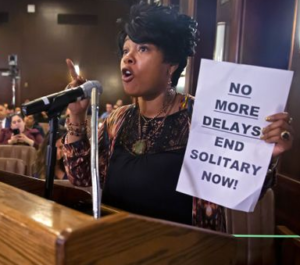 (Photo: Ben Fractenberg/
(Photo: Ben Fractenberg/ (New York, NY) — Today, the #HALTsolitary Campaign released the following statement on new evidence about Layleen Polanco’s tragic death and Elizabeth Warren’s call for an end to solitary confinement:
(New York, NY) — Today, the #HALTsolitary Campaign released the following statement on new evidence about Layleen Polanco’s tragic death and Elizabeth Warren’s call for an end to solitary confinement: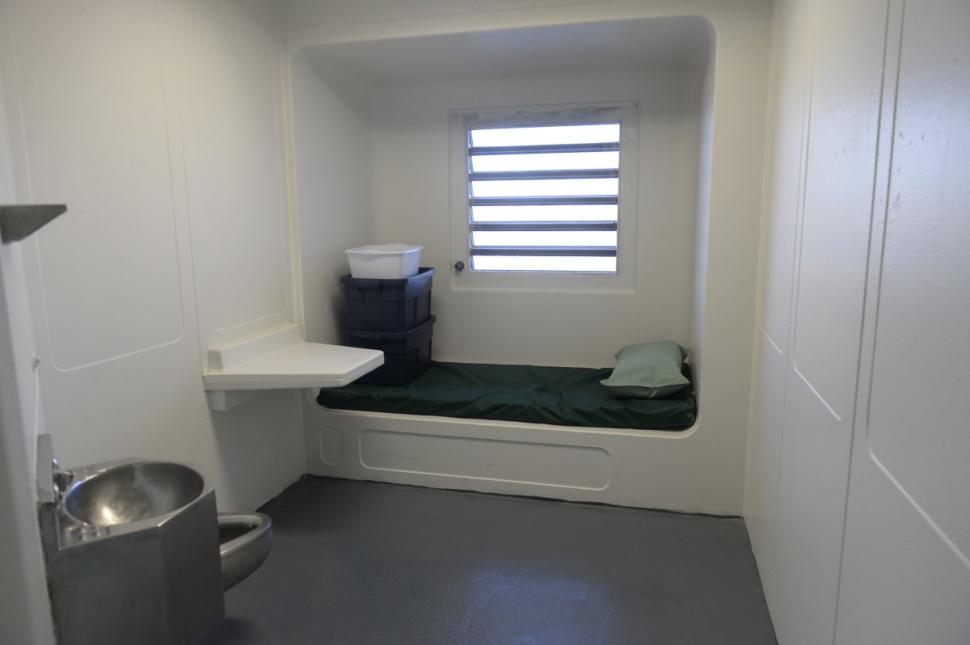 New York Must Pass #HALTsolitary Now!
New York Must Pass #HALTsolitary Now! 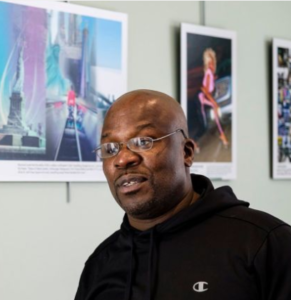
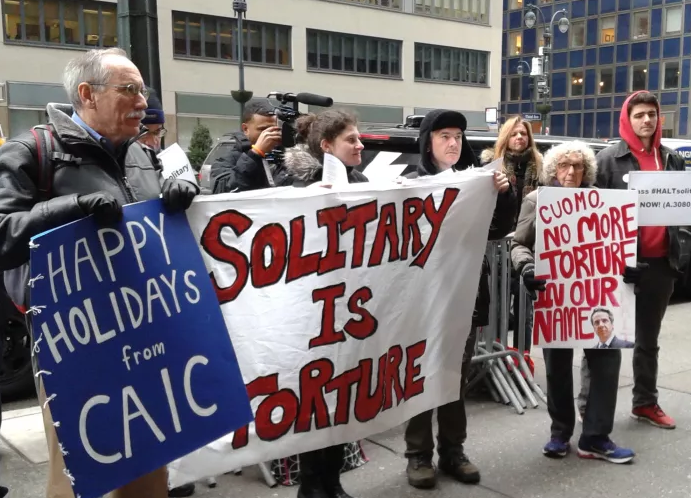 by Victoria Law. Excerpted from
by Victoria Law. Excerpted from 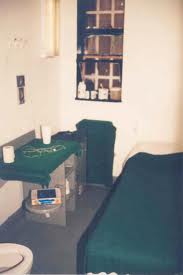
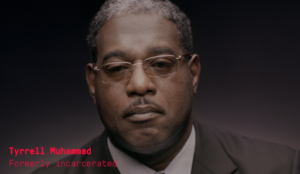 “We Are Witnesses”
“We Are Witnesses”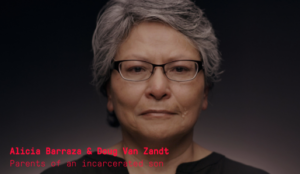 “He wasn’t a bad kid. He was just a kid that was mentally ill.”
“He wasn’t a bad kid. He was just a kid that was mentally ill.”
Follow the #HALTsolitary Campaign